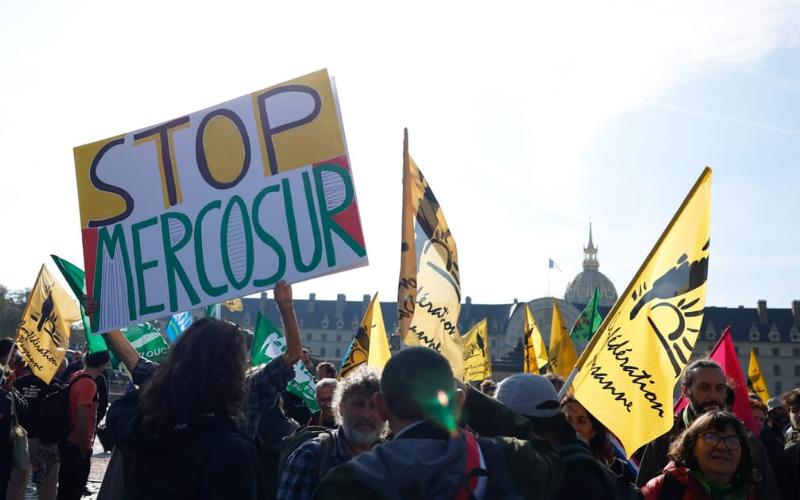Harris Faces Criticism Over Vague "Price Gouging" Ban Amid Inflation Concerns
Democratic presidential nominee Kamala Harris is under increasing pressure to clarify or abandon her proposal to ban “price gouging” by food and grocery companies, which has drawn substantial criticism for its lack of detail.

Harris’s plan, introduced earlier this month, aims to implement the first federal ban on excessive price increases for essential food items, empowering the Federal Trade Commission (FTC) to take action against companies inflating prices beyond inflationary pressures.
The proposal, part of a broader economic policy agenda, has been met with skepticism from various quarters, including many in her own party. Critics argue that the initiative is more politically driven than a practical policy solution, designed to appeal to voters frustrated by high grocery prices, which remain 20% higher than pre-pandemic levels.
The pushback has been swift. Democratic leaders, economists, and industry experts have voiced concerns that Harris’s proposal lacks clarity and is unlikely to pass through Congress. Even Democratic economists, such as Jason Furman, former top economic advisor during the Obama administration, criticized the plan, stating, “There’s no upside here, and there is some downside.”
Harris’s "price gouging" ban comes at a time when the U.S. is grappling with rising grocery prices, largely driven by inflation. The FTC, led by Lina Khan, has argued that some companies are engaging in "greedflation"—inflating prices beyond what is necessary. Harris’s proposal appears aligned with this view but diverges from the stance of many Democrats, including President Biden, who has not endorsed such a measure.
The ongoing merger between Kroger and Albertsons has further fueled the debate around the proposal. While Harris and other progressive Democrats support FTC opposition to the merger, critics argue that a federal ban on price gouging could further complicate the competitive landscape.
Given the mounting opposition, Harris will need to either provide more concrete details on how the plan would work or pivot away from the idea to focus on other economic solutions, especially as inflation continues to moderate and grocery prices begin to stabilize.
The proposal, part of a broader economic policy agenda, has been met with skepticism from various quarters, including many in her own party. Critics argue that the initiative is more politically driven than a practical policy solution, designed to appeal to voters frustrated by high grocery prices, which remain 20% higher than pre-pandemic levels.
The pushback has been swift. Democratic leaders, economists, and industry experts have voiced concerns that Harris’s proposal lacks clarity and is unlikely to pass through Congress. Even Democratic economists, such as Jason Furman, former top economic advisor during the Obama administration, criticized the plan, stating, “There’s no upside here, and there is some downside.”
Harris’s "price gouging" ban comes at a time when the U.S. is grappling with rising grocery prices, largely driven by inflation. The FTC, led by Lina Khan, has argued that some companies are engaging in "greedflation"—inflating prices beyond what is necessary. Harris’s proposal appears aligned with this view but diverges from the stance of many Democrats, including President Biden, who has not endorsed such a measure.
The ongoing merger between Kroger and Albertsons has further fueled the debate around the proposal. While Harris and other progressive Democrats support FTC opposition to the merger, critics argue that a federal ban on price gouging could further complicate the competitive landscape.
Given the mounting opposition, Harris will need to either provide more concrete details on how the plan would work or pivot away from the idea to focus on other economic solutions, especially as inflation continues to moderate and grocery prices begin to stabilize.











